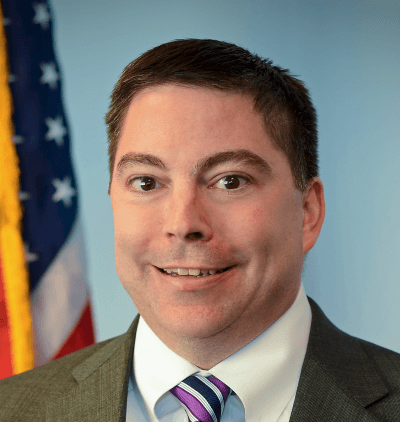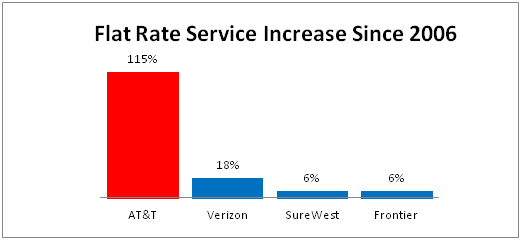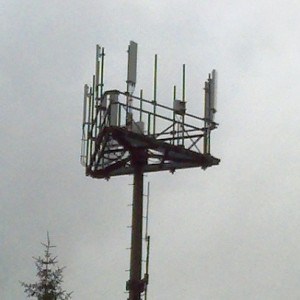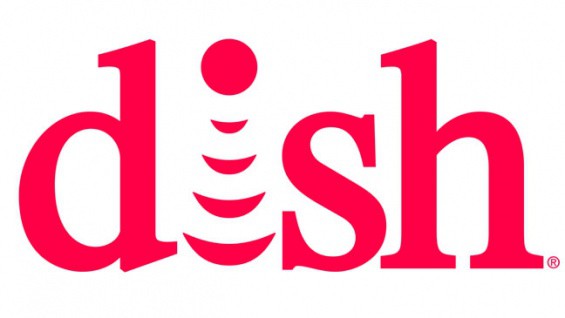
Wheeler
The chairman of the Federal Communications Commission has foreshadowed his revised plan for Net Neutrality will include reclassification of broadband as a utility, allowing the agency to better withstand future legal challenges as it increases its oversight of the Internet.
Tom Wheeler’s latest comments came during this week’s consumer electronics show in Las Vegas. Wheeler stressed he supports reclassification of broadband, away from its current definition as an “information service” subject to Section 706 of the Telecom Act of 1996 (all two broadly written paragraphs of it) towards a traditional “telecommunications service.” Under the Communications Act of 1934, that would place broadband under Title II of the FCC’s mandate. Although at least 100 pages long, Title II has stood the test of time and has withstood corporate lawsuits and challenges for decades.
Section 706 relies almost entirely on competition to resolve disputes by allowing the marketplace to solve problems. The 1996 Telecom Act, signed into law by President Bill Clinton, sought to promote competition and end “barriers to infrastructure investment.” Broadly written with few specifics, large telecom companies have successfully argued in court that nothing in Section 706 gives the FCC the right to interfere with the marketing and development of their Internet services, including the hotly disputed issues of usage caps, speed throttling, and the fight against paid fast lanes and Internet traffic toll booths. In fact, the industry has argued increased involvement by the FCC runs contrary to the goals of Section 706 by deterring private investment.
An executive summary of a report published on the industry-funded Internet Innovation Alliance website wastes no time making that connection, stating it in the first paragraph:
Net neutrality has the potential to distort the parameters built into operator business cases in such a way as to increase the expected risk. And because it distorts the operator investment business decision, net neutrality has the potential to significantly discourage infrastructure investment. This is due to the fact that investments in infrastructure are highly sensitive to expected subscriber revenue. Anything that reduces the expectation of such revenue streams can either delay or curtail such investments.
 Unfortunately for consumers, even the chairman of the FCC concedes the broadband marketplace isn’t exactly teeming with the kind of competition Section 706 envisioned to keep the marketplace in check. In fact, Wheeler suggested most Americans live with a broadband duopoly, and often a monopoly when buying Internet access at speeds of 25Mbps or greater. Further industry consolidation is already underway, which further deters new competitors from entering the market.
Unfortunately for consumers, even the chairman of the FCC concedes the broadband marketplace isn’t exactly teeming with the kind of competition Section 706 envisioned to keep the marketplace in check. In fact, Wheeler suggested most Americans live with a broadband duopoly, and often a monopoly when buying Internet access at speeds of 25Mbps or greater. Further industry consolidation is already underway, which further deters new competitors from entering the market.
Net Neutrality critics, the broadband industry, and their allies on Capitol Hill have argued that adopting Title II rules for broadband will saddle ISPs with at least one hundred pages of rules originally written to manage the landline telephone monopoly of the 1930s. Title II allows the FCC to force providers to charge “just and reasonable rates” which they believe opens the door to rate regulation. It also broadly requires providers to act “in the public interest” and unambiguously prohibits companies from making “any unjust or unreasonable discrimination in charges, practices, classifications, regulations, facilities, or services.”
Both Comcast and Verizon have challenged the FCC’s authority to regulate Internet services using Section 706, and twice the courts have ruled largely in favor of the cable and phone company. Judges have no problem permitting the FCC to enforce policies that encourage competition, which has allowed the FCC some room to insist that whatever providers choose to charge customers or what they do to manage Internet traffic must be fully disclosed. The court in the Verizon case also suggested the FCC has the authority to oversee the relationship between ISPs and content providers also within a framework of promoting competition.

DC Circuit Court
But when the FCC sought to enforce specific policies governing Internet traffic using Section 706, they lost their case in court.
Although Net Neutrality critics contend the FCC has plenty of authority to enforce Net Neutrality under Section 706, in reality the FCC’s hands are tied as soon as they attempt to implement anti-blocking and anti-traffic discrimination rules.
The court found that the FCC cannot impose new rules under Section 706 that are covered by other provisions of the Communications Act.
So what does that mean, exactly?

Michael Powell, former FCC chairman, is now the chief lobbyist for the National Cable & Telecommunications Association. (Photo courtesy: NCTA)
In 2002, former FCC chairman Michael Powell (who serves today as the cable industry’s chief lobbyist) presided over the agency’s decision to classify broadband not as a telecommunications service but an “information service provider” subject to Title I oversight. Whether he realized it or not, that decision meant broadband providers would be exempt from common carrier obligations as long as they remained subject to Title I rules.
When the FCC sought to write rules requiring ISPs not block, slow or discriminate against certain Internet traffic, the court ruled they overstepped into “common carrier”-style regulations like those that originally prohibited phone companies from blocking phone calls or preventing another phone company from connecting calls to and from AT&T’s network.
If the FCC wanted to enforce rules that mimic “common carrier” regulations, the court ruled the FCC needed to demonstrate it had the regulatory authority or risk further embarrassing defeats in the courtroom. The FCC’s transparency rules requiring ISPs to disclose their rates and network management policies survived Verizon’s court challenge because the court found that policy promoted competition and did not trespass on regulations written under Title II.
The writing on the wall could not be clearer: If you want Net Neutrality to survive inevitable court challenges, you need to reclassify broadband as a telecommunications service under Title II of the Communications Act.
Major ISPs won’t hear of it however and have launched an expensive media blitz claiming that reclassification would subject them to 100 pages of regulations written for the rotary dial era. Broadband, they say, would be regulated like a 1934 landline. Some have suggested the costs of complying with the new regulations would lead to significant rate increases as well. Many Republicans in Congress want the FCC to wait until they can introduce and pass a Net Neutrality policy of their own, one that will likely heavily tilt in favor of providers. Such a bill would likely face a presidential veto.
Suggestions the FCC would voluntarily not impose outdated or irrelevant sections of Title II on the broadband industry didn’t soothe providers or their supporters. Republican FCC commissioners are also cold to the concept of reclassification.

O’Rielly
“Title II includes a host of arcane provisions,” said FCC commissioner Michael O’Rielly in a meeting in May 2014. “The idea that the commission can magically impose or sprinkle just the right amount of Title II on broadband providers is giving the commission more credit than it ever deserves.”
Providers were cautiously optimistic in 2014 they could navigate around strong Net Neutrality enforcement with the help of their lobbyists and suggestions that an industry-regulator compromise was possible. Early indications that a watered-down version of Net Neutrality was on the way came after a trial balloon was floated by Wheeler last year. Under his original concept, paid fast lanes and other network management and traffic manipulation would be allowed if it did not create undue burdens on other Internet traffic.
Net activists loudly protested Wheeler’s vision of Net Neutrality was a sellout. Wheeler’s vision was permanently laid to rest after last November when President Barack Obama suddenly announced his support for strong and unambiguous Net Neutrality protections (and reclassifying broadband as a Title II telecommunications service), No FCC chairman would likely challenge policies directly advocated by the president that nominated him.
Obama spoke, Thomas Wheeler listened. Wheeler’s revised Net Neutrality plan is likely to arrive on the desks of his fellow commissioners no later than Feb. 5, scheduled for a vote on Feb. 26. It’s a safe bet the two Republicans will oppose the proposal and the three Democrats will support it. But chairman Wheeler also listens to Congress and made it clear he doesn’t have a problem deferring to them if they feel it necessary.
“Clearly, we’re going to come out with what I hope will be the gold standard,” Wheeler told the audience in Las Vegas. “If Congress wants to come in and then say, we want to make sure that this approach doesn’t get screwed up by some crazy chairman that comes in, [those are] legitimate issues.”
If that doesn’t work, the industry plans to take care of the Net Neutrality regulation problem itself. Hours after any Net Neutrality policy successfully gets approved, AT&T has promised to challenge it in court.
[flv]http://www.phillipdampier.com/video/Fox Business News Net Neutrality Wheeler 1-8-15.flv[/flv]
Free Press CEO Craig Aaron appeared on Fox Business News to discuss Tom Wheeler’s evolving position on Net Neutrality. (3:54)

 AT&T’s Wireless Home Internet plan charges $60/month for 10GB of Internet use, $90/month for 20GB, and $120/month for 30GB. The overlimit fee is $10 per gigabyte. Telephone service is extra.
AT&T’s Wireless Home Internet plan charges $60/month for 10GB of Internet use, $90/month for 20GB, and $120/month for 30GB. The overlimit fee is $10 per gigabyte. Telephone service is extra.

 Subscribe
Subscribe
 Unfortunately for consumers, even the chairman of the FCC concedes the broadband marketplace isn’t exactly teeming with the kind of competition Section 706 envisioned to keep the marketplace in check. In fact, Wheeler suggested most Americans live with a broadband duopoly, and often a monopoly when buying Internet access at speeds of 25Mbps or greater. Further industry consolidation is already underway, which
Unfortunately for consumers, even the chairman of the FCC concedes the broadband marketplace isn’t exactly teeming with the kind of competition Section 706 envisioned to keep the marketplace in check. In fact, Wheeler suggested most Americans live with a broadband duopoly, and often a monopoly when buying Internet access at speeds of 25Mbps or greater. Further industry consolidation is already underway, which 


 When Verizon Wireless finally fired up its network in Alaska in September of 2014, the writing was on the wall for at least one of Alaska’s homegrown wireless competitors.
When Verizon Wireless finally fired up its network in Alaska in September of 2014, the writing was on the wall for at least one of Alaska’s homegrown wireless competitors.
 AT&T has
AT&T has  AT&T calls the FTC’s claims it can intervene in services not regulated by the FCC “irrelevant,” arguing once one of AT&T’s services is subject to the FCC’s common carrier regulation, all of its services become untouchable by the FTC.
AT&T calls the FTC’s claims it can intervene in services not regulated by the FCC “irrelevant,” arguing once one of AT&T’s services is subject to the FCC’s common carrier regulation, all of its services become untouchable by the FTC.
 DISH’s plans to stream video content over the Internet could one day also include 4K programming, but viewers are likely to run smack into usage caps and usage billing that ISPs are using to deter online video from gutting cable television revenue as well as further monetizing already highly profitable broadband.
DISH’s plans to stream video content over the Internet could one day also include 4K programming, but viewers are likely to run smack into usage caps and usage billing that ISPs are using to deter online video from gutting cable television revenue as well as further monetizing already highly profitable broadband.